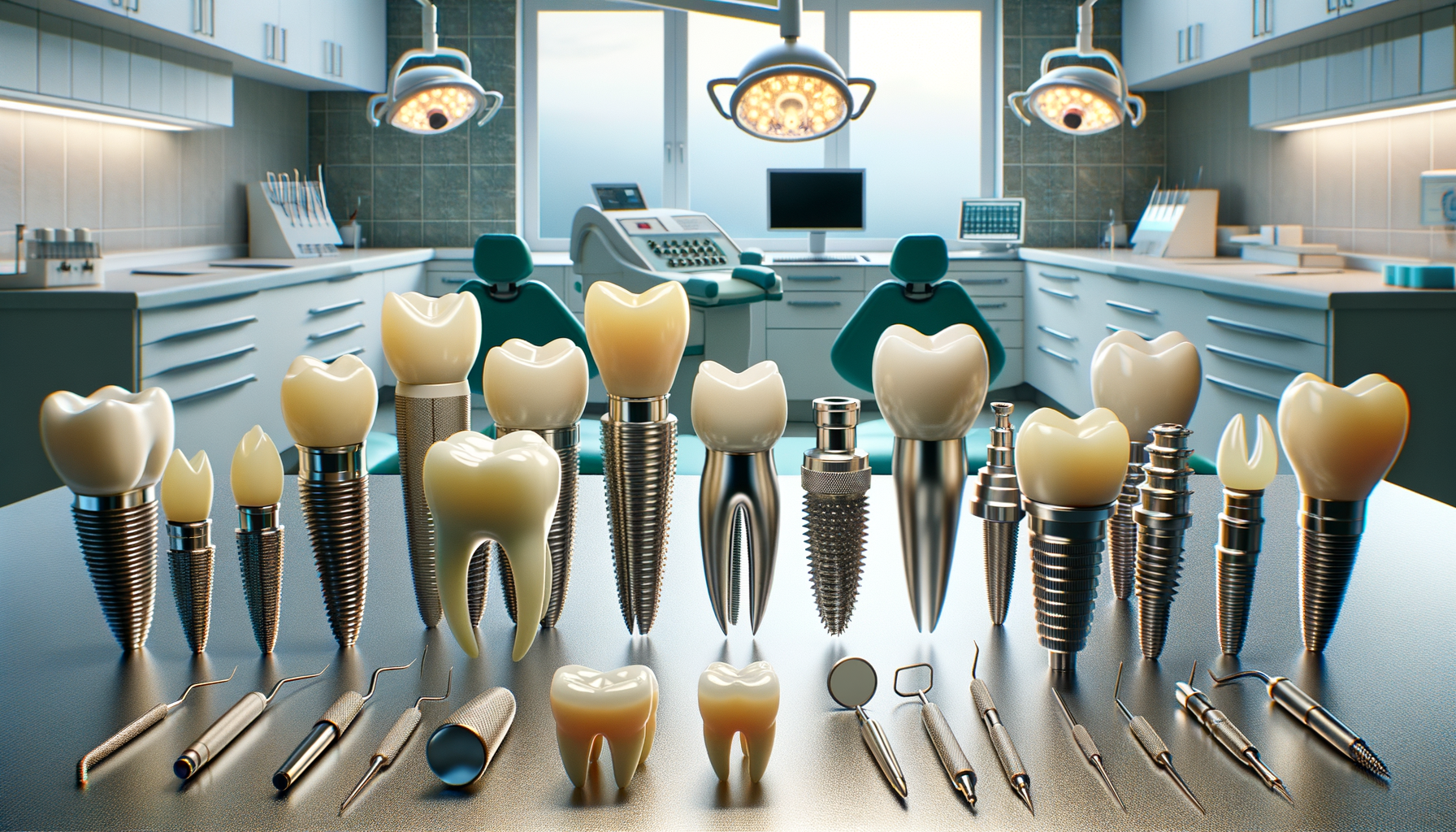Understanding Dental Implants: What Are They?
Dental implants have revolutionized the field of restorative dentistry, offering a permanent solution for missing teeth. Essentially, a dental implant is a titanium post that is surgically placed into the jawbone beneath the gum line. This post serves as a sturdy anchor for a replacement tooth or a bridge. Unlike dentures, implants do not come loose, providing a more natural feel and appearance.
The process of getting a dental implant involves several stages, including an initial consultation, the surgical placement of the implant, and the attachment of the prosthetic tooth. This comprehensive approach ensures that the implant integrates well with the bone, a process known as osseointegration, which can take several months.
One of the key advantages of dental implants is their durability. With proper care, they can last a lifetime, making them a cost-effective solution in the long run. Additionally, they help maintain the integrity of the jawbone, preventing the bone loss that often accompanies missing teeth. This not only supports facial structure but also contributes to overall oral health.
Dental implants are suitable for most adults who have lost teeth due to injury, decay, or other reasons. However, adequate bone density is required to support the implant, and certain health conditions may affect eligibility. Consulting with a dental professional can help determine if implants are the right choice for you.
The Benefits of Choosing Dental Implants
Choosing dental implants offers a multitude of benefits that extend beyond mere aesthetics. One of the most significant advantages is the improvement in oral function. Implants allow individuals to chew and speak more effectively compared to traditional dentures, which can sometimes slip or cause discomfort.
Moreover, dental implants provide a natural appearance, closely mimicking the look and feel of real teeth. This can significantly boost self-confidence, allowing individuals to smile and interact socially without the worry of visible gaps or ill-fitting dentures.
Another critical benefit is the preservation of jawbone health. When a tooth is lost, the lack of stimulation can lead to bone resorption. Dental implants help prevent this by acting as artificial roots, stimulating the bone and maintaining its density. This is crucial in preventing changes in facial structure that can occur with bone loss.
In terms of maintenance, dental implants are relatively easy to care for. They require the same oral hygiene practices as natural teeth, including regular brushing, flossing, and dental check-ups. This simplicity in care, coupled with their durability, makes implants a practical choice for many.
Finally, dental implants eliminate the need for altering adjacent teeth, as is often required with bridges. This preservation of natural teeth is a significant advantage, contributing to overall oral health and longevity.
Finding Dental Implants Near You: What to Consider
When considering dental implants, finding a qualified professional near you is crucial. The success of the procedure largely depends on the expertise of the dental surgeon and the quality of care provided. Here are some factors to consider when searching for dental implant services:
- Credentials and Experience: Ensure that the dental professional is experienced in implantology. Look for qualifications and any additional training in implant procedures.
- Technology and Facilities: Modern technology can greatly enhance the precision and success of implant procedures. Check if the clinic is equipped with the latest dental technology.
- Patient Reviews and Testimonials: Reading reviews from previous patients can provide insights into the quality of care and patient satisfaction.
- Consultation Process: A thorough initial consultation is essential. This should include a detailed assessment of your oral health, a discussion of your options, and a clear treatment plan.
- Cost and Financing Options: Dental implants can be a significant investment. Understanding the costs involved and exploring financing options can help in making an informed decision.
Additionally, consider the location and accessibility of the dental practice. Regular follow-up visits are necessary, so choosing a conveniently located clinic can save time and effort.
By taking these factors into account, you can ensure that you receive high-quality care and achieve the best possible outcome with your dental implants.




Leave a Reply